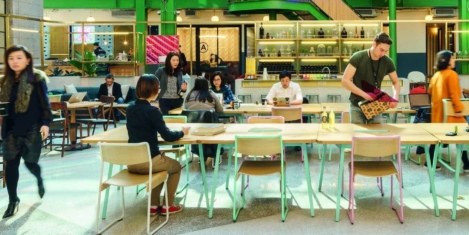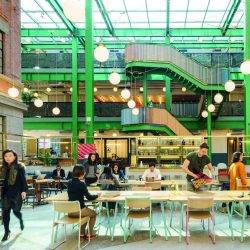To provide the best experiences, we use technologies like cookies to store and/or access device information. Consenting to these technologies will allow us to process data such as browsing behaviour or unique IDs on this site. Not consenting or withdrawing consent, may adversely affect certain features and functions.
The technical storage or access is strictly necessary for the legitimate purpose of enabling the use of a specific service explicitly requested by the subscriber or user, or for the sole purpose of carrying out the transmission of a communication over an electronic communications network.
The technical storage or access is necessary for the legitimate purpose of storing preferences that are not requested by the subscriber or user.
The technical storage or access that is used exclusively for statistical purposes.
The technical storage or access that is used exclusively for anonymous statistical purposes. Without a subpoena, voluntary compliance on the part of your Internet Service Provider, or additional records from a third party, information stored or retrieved for this purpose alone cannot usually be used to identify you.
The technical storage or access is required to create user profiles to send advertising, or to track the user on a website or across several websites for similar marketing purposes.
 Outline plans to regenerate the 40-acre former Boots Island site in Nottingham have been approved by Nottingham City Council planning committee. Conygar Investment Company PLC intends to transform the site, which has lain derelict for many years, into grade A office space, “creative market space”, homes a five-star hotel, retail units, a “linear’ park” and community space and student accommodation. (more…)
Outline plans to regenerate the 40-acre former Boots Island site in Nottingham have been approved by Nottingham City Council planning committee. Conygar Investment Company PLC intends to transform the site, which has lain derelict for many years, into grade A office space, “creative market space”, homes a five-star hotel, retail units, a “linear’ park” and community space and student accommodation. (more…)
























 Job security is the top reason employees in the UK joined their company, and also the main reason they stay, according to Mercer’s
Job security is the top reason employees in the UK joined their company, and also the main reason they stay, according to Mercer’s 







April 8, 2019
Navigating organisations through digital transformation
by Ian Tickle • Comment, Technology
(more…)